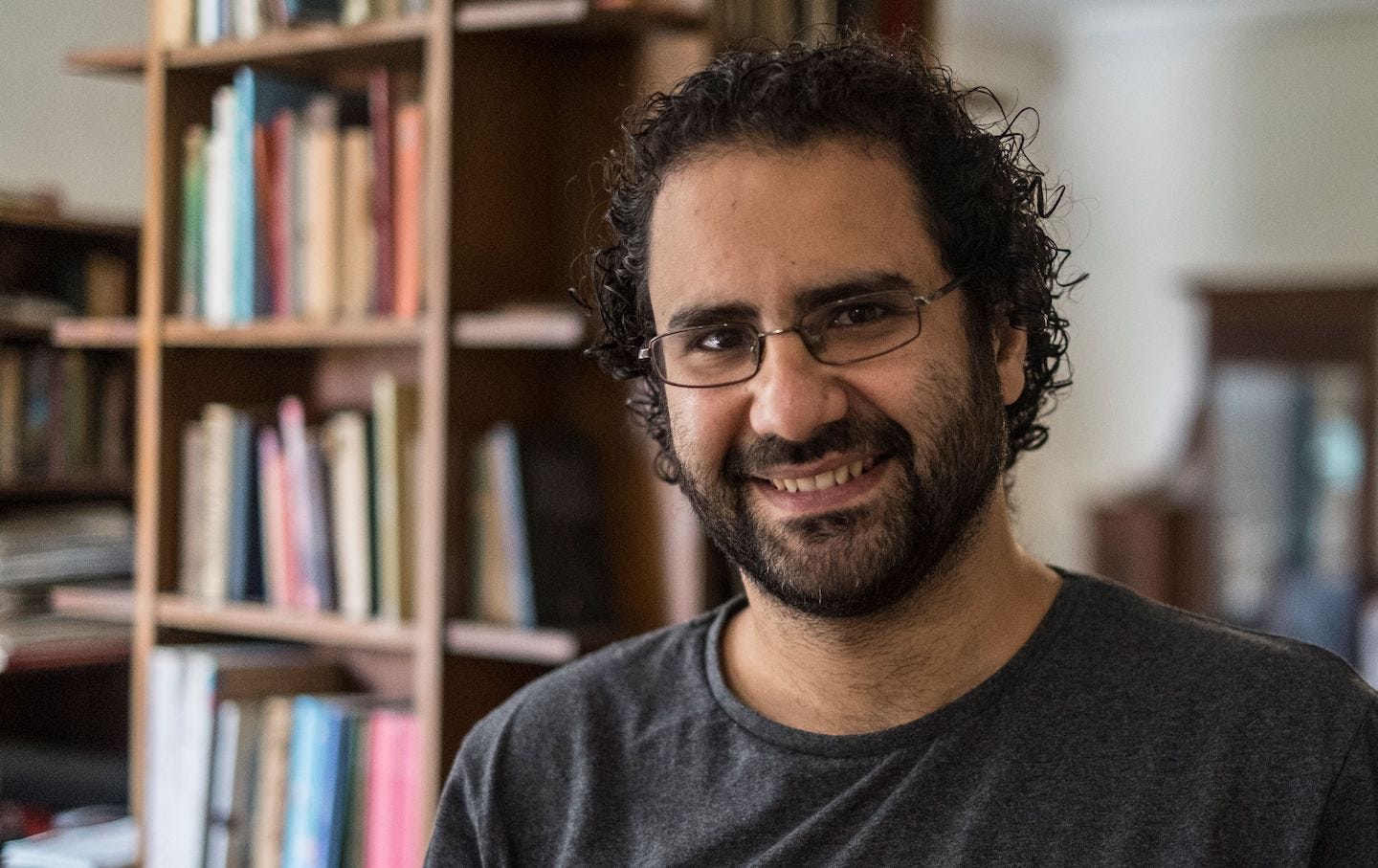Dissident Spotlight: Alaa Abd El-Fattah
Alaa Abd El-Fattah is an Egyptian dissident who has been imprisoned by multiple government regimes.

Alaa Abd El-Fattah has been arrested multiple times across several Egyptian governments in the years:
2006
2011
2013
2019
His sentences became more severe after his 2021 sentence and 2024 extension.
He is one of Egypt’s most prominent liberal writers, a consistent proponent for democratic representation in Egypt and an outspoken critic of the atrocities his country’s authoritarian leaders commit, including the persecution of Islamist political figures who would likely imprison El-Fattah if they came to power.
But he hasn’t just argued for representative government. El-Fattah has also articulated clear principles that would define a new state constitution. In a collection of his writings, You Have Not Yet Been Defeated, he argued for including ordinary people in drafting new founding documents:
“Popular participation leads to a revolutionary charter composed in lyrical language calling for the doors of education and culture to be thrown open, while a closed-door meeting of experts results in a noted judge suggesting that the votes of educated people should carry more weight. Can you imagine such an idea coming out of a national consensus that included those not fortunate enough to have got an education? This is guardianship, then—not representation, nor consensus.”
He doesn’t lose sight of the impact that corrupt government has on ordinary people, making him a critic of his own movement as much as a critic of the political forces that imprison and kill inconvenient voices.
How to Support the Revolutionaries
El-Fattah had advice for ordinary people as well as people who actively fought the government. He wrote from Torah Prison:
“In prison we resist despair. Inspiring hope is your job. So please: inspire us. Egypt might ‘be OK’ if the repression was inspiring more people to resist and brave detention, injury and death.”
El-Fattah’s message calls for moral support, but it also means citizens can only watch the fight against the government for so long. Eventually, some of them have to attend demonstrations, speak out against government abuses, and risk being killed or imprisoned.
El-Fattah is still in prison, so it’s up to us to keep hope alive in the fight against authoritarians whether we risk our bodies or amplify imprisoned voices.

